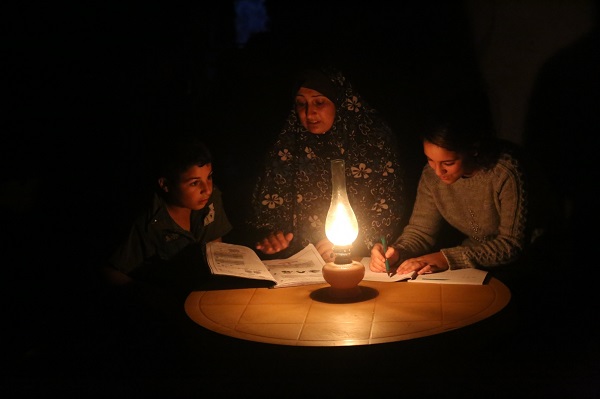Gaza, (Samajweekly) A study published by the International Committee of the Red Cross (ICRC) has revealed that about 80 per cent of the population in the Gaza Strip live in “complete darkness” amid a severe power shortage.
The study sent to Xinhua news on agency on Monday said that “80 per cent of the population of the Gaza Strip spend most of their times in complete darkness, with electricity only available for eight hours a day at best”.
“This problem is more threatening to the health and well-being of the Gaza Strip residents, which is home to more than 2 million people, with the continuing rise of temperatures during summer days,” the study said.
During the last round of tension between Israel and Gaza militant groups in May, the infrastructure was badly damaged, including electricity lines and electric poles that caused a significant shortage of supplies through the main networks of power.
The ICRC study said that at least 25 per cent of the Gaza Strip’s population cannot afford additional supplies of electricity through power generators.
Miriam Muller, head of the ICRC’s sub-delegation in Gaza, said that the electricity crisis in Gaza “has worsened and it affects basic services such as water supply, sewage treatment, sanitation, and businesses”.
The Gaza Strip is witnessing a severe energy crisis due to the shortage of the only power plant production of power, which reaches 50 per cent, coinciding with the wave of heat that increases the demand for electricity.
The besieged enclave receives 120 megawatts supplied by Israel and 30 megawatts by Egypt, while the rest is produced by the only power plant in Gaza, which usually suffers from a lack of fuel to operate completely.
Officials said that the coastal enclave needs 500 megawatts, and all that is available does not exceed 200 megawatts.










